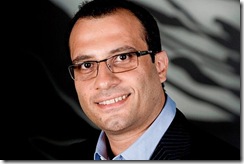For the first half of 2011 to end-June, the Zain Group reported consolidated revenues of KWD659.4 million (US$2.38 billion), up two per cent year-on-year. The period witnessed net income increasing to KWD140.2 million, up 17% from H110. The telco’s consolidated EBITDA reached KWD293.1 million for the period, up six per cent year-on-year, reflecting an EBITDA margin of 44 per cent (up one percentage point).
Year-on-year customer growth across all operations in which Zain operates was 16 per cent, with the company adding 5.46 million customers in the 12 months to end-June 2011. Zain served 39.6 million managed active customers as of June 30, 2011. Zain Saudi Arabia witnessed 32 per cent year-on-year growth to serve 9.1 million customers and Sudan 24 per cent growth to end the period serving 11.4 million. Zain Kuwait also increased its customer base by seven per cent reaching a milestone two million customers, along with increases in Jordan of 5.5 per cent and for Iraq 5.2 per cent to serve 2.7 million and 12.3 million customers respectively.
Q211 operational highlights:
· Zain received remaining US$700 million from sale of Africa assets to Airtel
· Zain Saudi Arabia successfully refinanced US$600 million Murabaha loan with syndicate of regional banks to fund future growth of mobile operation
· Notable growth in Zain Sudan, which now serves 11.4 million customers, and attained a 14 per cent revenue increase in local SDG currency
· Zain Iraq served 12.3 million customers, with 10 per cent increase in revenues
· Zain Group’s e-mal mobile financial services platform launched in Jordan
· Zain Group signs deal with Apple and launches iPhone 4 in Kuwait, Jordan and Bahrain





